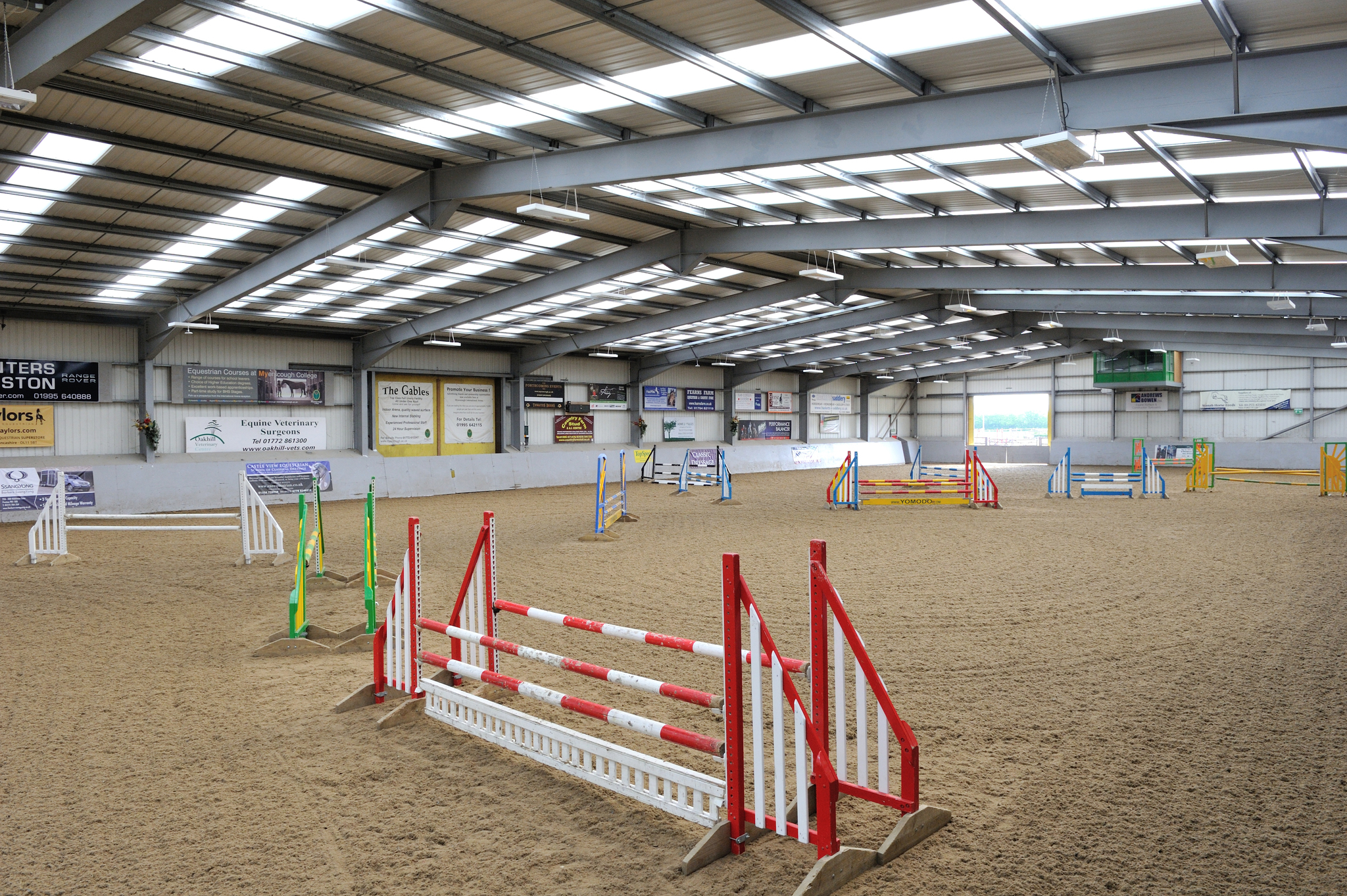Course modules
Year 1
Assist with the Care of Animals
In this unit students will monitor the health and condition of the animals, and provide feed and water for them.
Adopt Good Bio-security Practices at Work
In this unit students will assist with maintaining appropriate levels of bio-security in the workplace, including personal hygiene and the use of appropriate PPE.
Identify Weeds
This unit will enable students to demonstrate their knowledge required to identify weeds found within the countryside.
Assist with the Exercise of Animals
In this unit the students will gain an insight into different types of exercise available to horses, gaining experience with a range of equipment and techniques.
Assist with the Handling and Restraint of Animals
In this module students will work on safe handing of the horse and methods of restraining the horse e.g. for the vet or farrier.
Assist with the Preparation and Maintenance of Animal Accommodation
In this unit students will prepare stables for new horses and practice different systems of mucking out. The unit covers different types of stabling, the various materials used for bedding and suitable fixtures and fittings for a stable and yard. Students will develop the knowledge and understanding of sustainability within a stable yard.
Year 2
Assist with feeding and watering animals
This unit covers the basic feeding and watering requirements for horses. It encompasses a variety of different feeding and watering systems.
Team Work in Environmental Studies
In this unit students will be able to work cooperatively with colleagues to achieve good communication and reach the group's objectives.
Principles of the Preparation and the Monitoring of Livestock Outdoors
This unit content will enable students to demonstrate skills in selecting, preparing and maintaining animal feed, water and accommodation.
Assist with Maintaining the Health and Well-being of Horses
This module covers general health problems associated with every day care of the horse in the stable and kept out at grass.
Entry requirements & additional information
Entry requirements
Students need to be 14 or over with some horse related experience and have functional English, Maths and Science skills.
Learning and assessment
Multiple choice exam, assignments and portfolio of evidence of practical skills.
Group Size: 12.
Credit value: Certificate 18, Diploma 42.
Progression
Students who successfully complete the course may wish to study full time at Myerscough or at another college or enrol onto a work based apprenticeship.
Special requirements
Costs that are mandatory for the course: (Approx £100)
Black or navy jodhpurs and sweatshirt.
Dark jacket.
Long or short riding boots.
Gloves, hairnet and short whip.
Pen, folder and paper.
Riding hat.
Myerscough College Accepted Hat Standards
PAS 015
ASTM F1163
SNELL E2001
BSEN 1384
EN 1384
Course fees apply to school educated students. Please refer to the 14-16 prospectus
Latest news, Equine studies
-
Croxteth students witness equine rescue demonstration at Merseyside Fire and Rescue Service
- Published
- Thursday 23 January
-
Higher education Research Conference a success
- Published
- Friday 8 Nov 2024
-
OPINION: Supporting young people into the equine industry
- Published
- Wednesday 6 Nov 2024
-
Charlotte’s research has horse power
- Published
- Monday 7 Oct 2024
-
Myerscough gallops to innovative apprenticeships in the horse racing sector
- Published
- Monday 9 Sep 2024
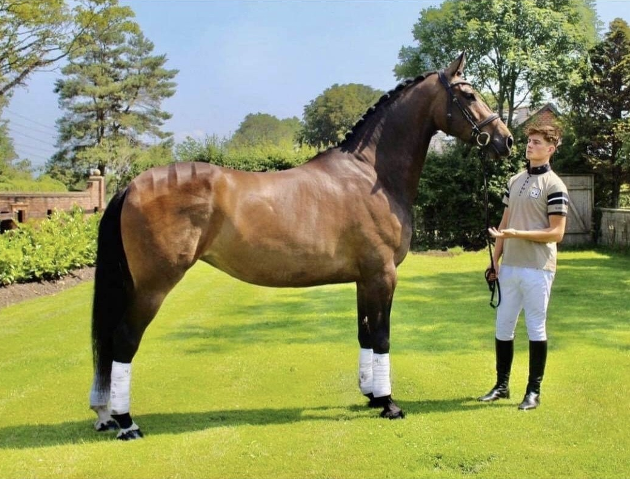

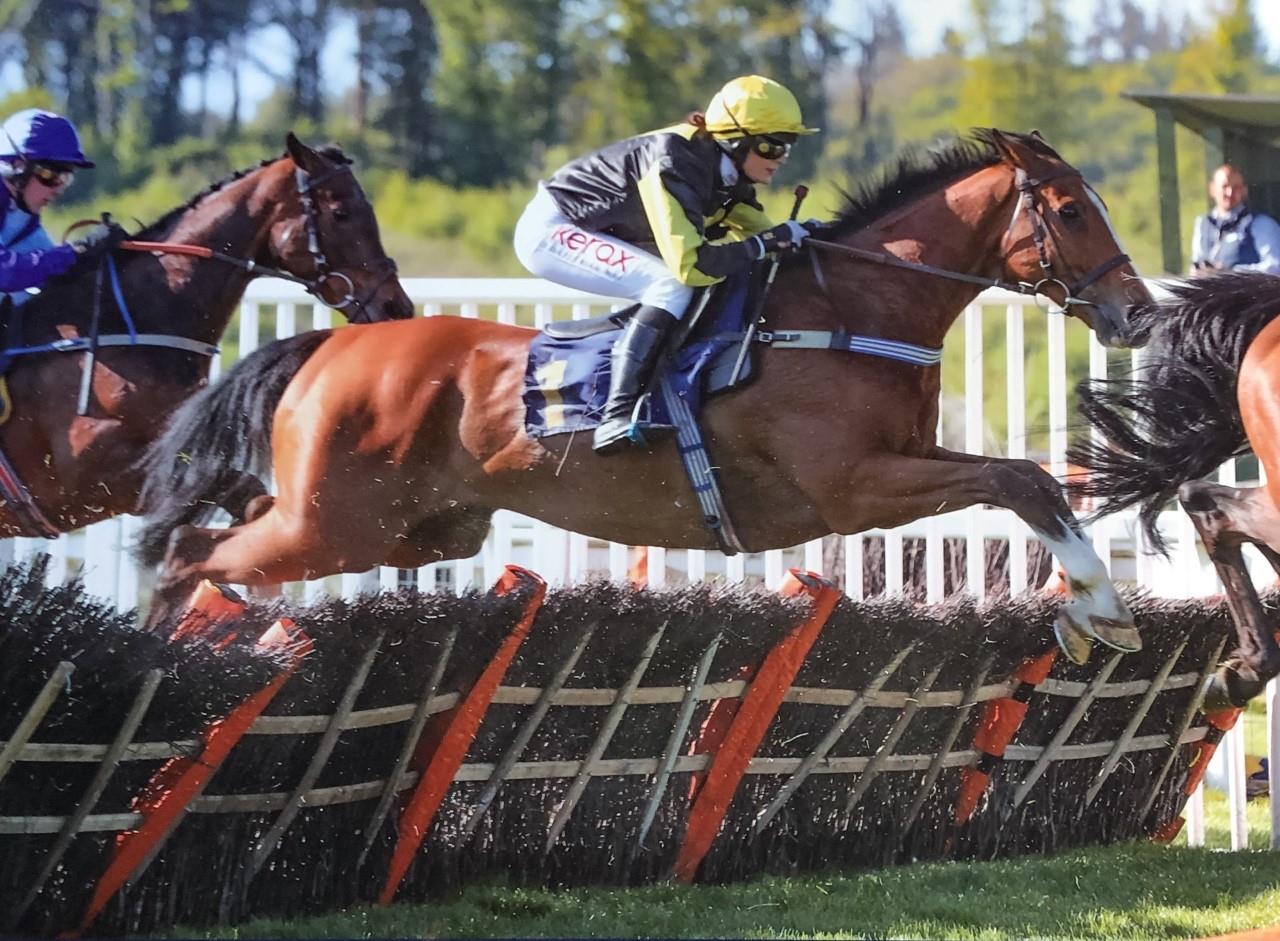

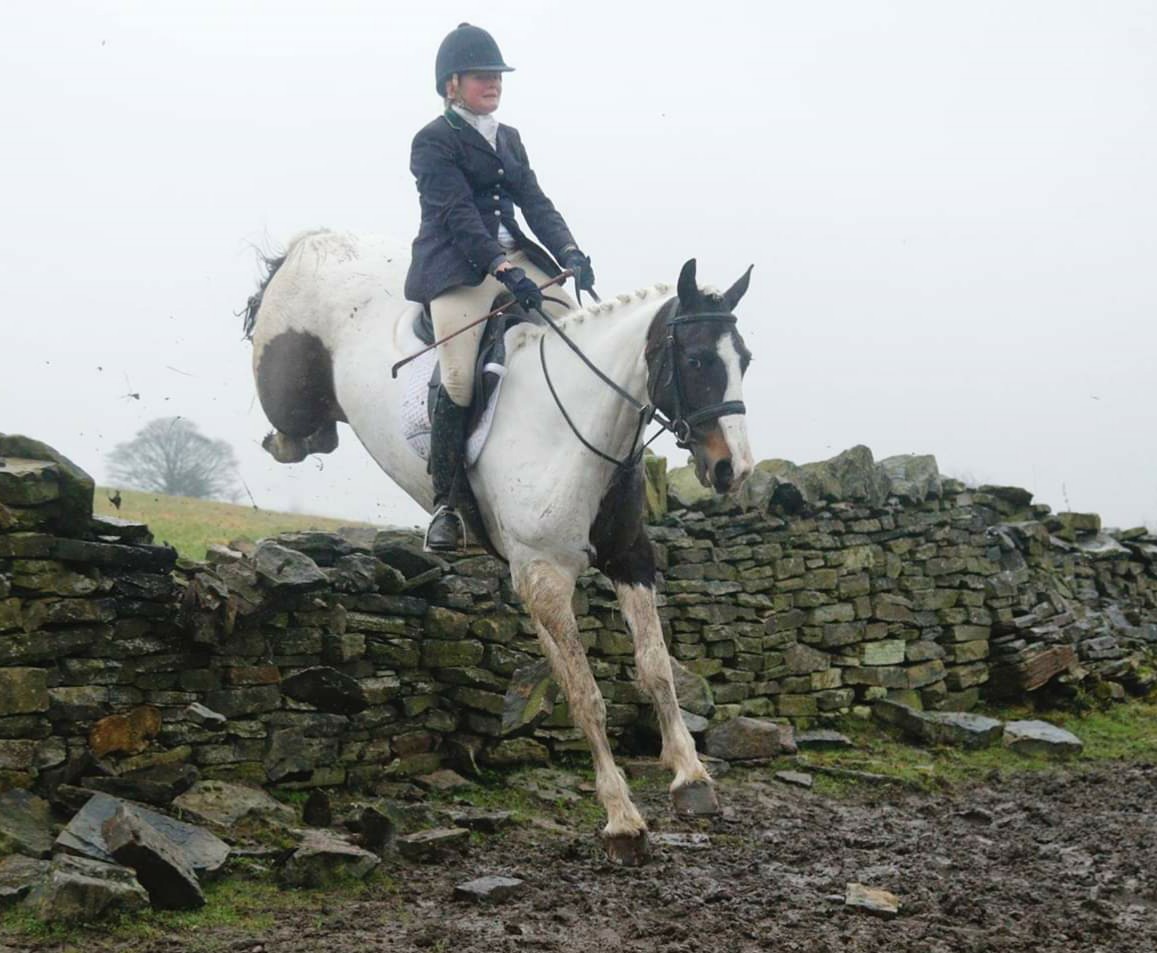
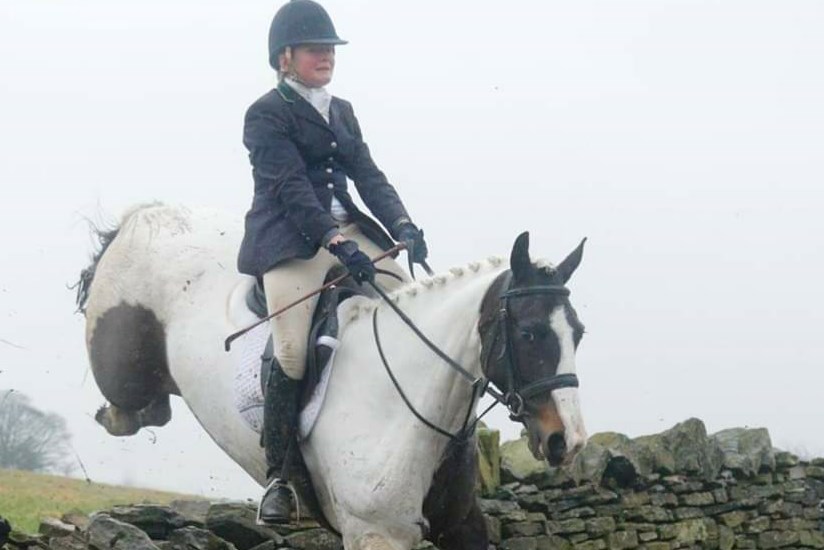
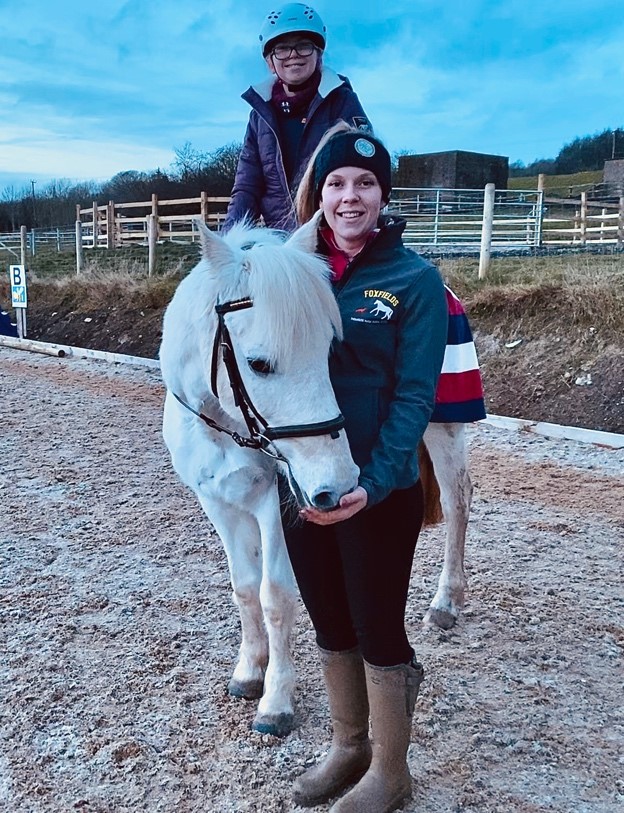
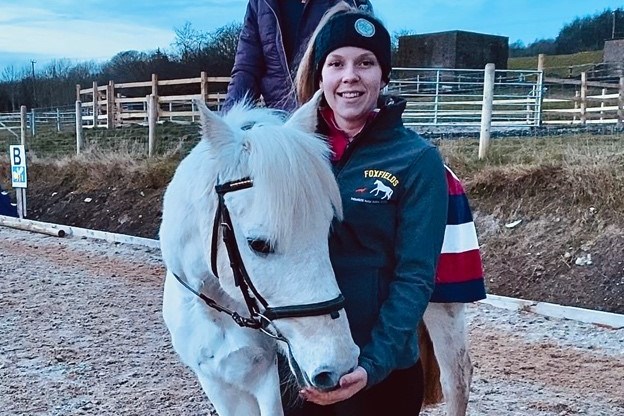
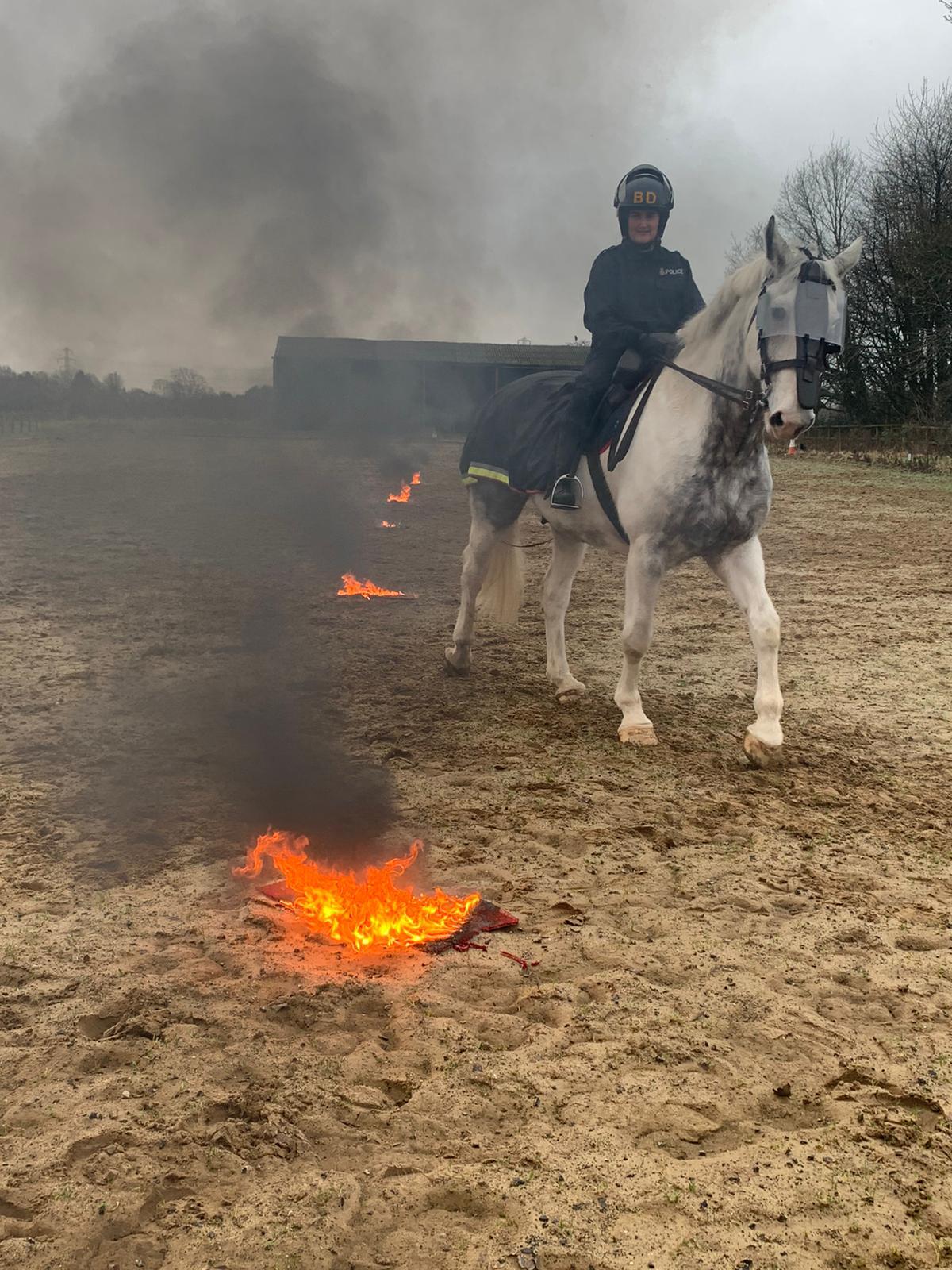
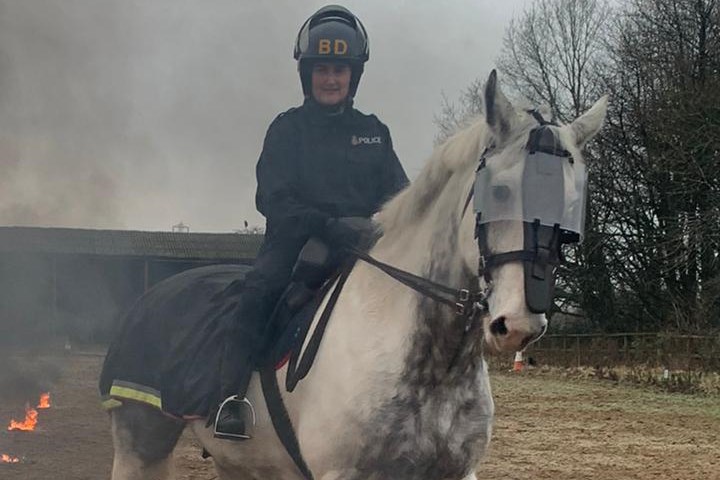
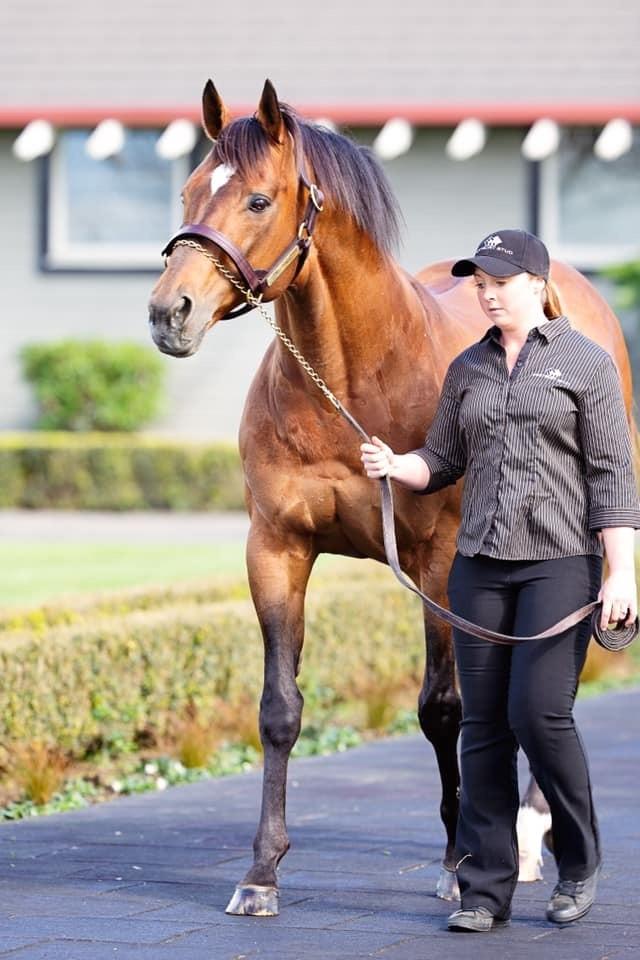
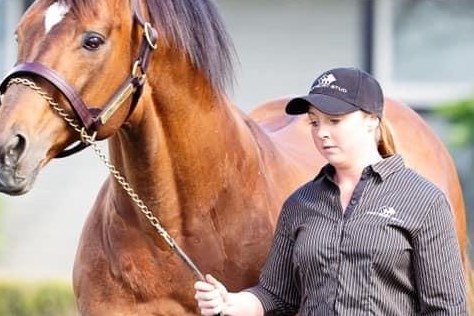
IMPORTANT INFORMATION REGARDING OUR VOCATIONAL OFFER FOR HOME EDUCATED STUDENTS FROM SEPTEMBER 2025
Tuesday 12th November 2024 update
Myerscough College is committed to providing high quality technical education across the land-based and sports sectors. Our 14-16 curriculum provision will remain in place for the 2025/26 academic year, starting September 2025, but it will need to be accessed via applications from local schools, on behalf of their pupils.
After extensive discussions with our Local Authorities (LAs) regarding the future of home education, it is clear that the government is focused on prioritising the reintegration of many home educated young people back into mainstream education. In light of this direction, we have made the strategic decision to change the Elective Home Educated (EHE) element of our 14-16 programme, in order to align with this broader educational policy.
Electively Home Educated applicants can no longer apply for courses at Myerscough. The only route to enrolling on a course at Myerscough is through a school who commissions this as an alternative provision.
This change will not impact students who are already attending Myerscough College through their schools.
If you would like to consider enrolling at a local school or need further support with your education at home, please contact your Electively Home Educated teams in your relevant local authority. They will be able to provide information about available school places for September 25 entry. It may be possible that some schools will agree to your child continuing with their course at Myerscough but this will need to be discussed with the school.
For information about the content of the 14-16 curriculum you can email us at 14to16@myerscough.ac.uk or call 01995 642222.
Additional support
Myerscough will arrange for copies of academic reports to be sent to educational providers in order to support and enhance the likelihood of securing a school or alternative provision placement for students.
Additionally, please access the links below to help with guidance and support during this transition period:
https://www.youngminds.org.uk/professional/resources/supporting-school-transitions/
Supporting children's transition to secondary school: guidance for parents and carers | Anna Freud

